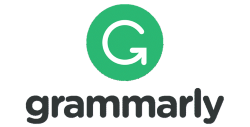Ojo Kuwi song As Communist Discourse Formation In the election of the President of the Republic of Indonesia in 2014
Abstract
Keywords
Full Text:
PDFReferences
Burton, Michael J & Shea, Daniel M. (2010). Campaign Craft: The Strategies, Tactics, and Art of Political Campaign Management. California: Praeger.
Guba, Egon G & Yvonna S. Lincoln. (1994). Competing Paradigms in Qualitative Research. In Norman K. Denzim & Yvonna S. Lincoln (ed.), Handbook of Qualitative Research. Thousand Oaks: Sage Publications.
Low, Setha & Niel, Smith. (2006). The Politics of Public Space. NY: Routledge.
Newman, W. Lawrence. (1997). Social Research Methods: Qualitative and Quantitative Approaches. Boston: Allyn & Bacon.
Olick, Jeffrey. (1999). Collective Memory: The Two Culture, Sociological Theory.
Popkewitz, Thomas S. (1990). Whose Future? Whose Past?: Notes on Critical Theory and Methodology. In Egon G. Guba (ed.), The Paradigm Dialog, Newbury Park: Sage Publications.
Sneyder, Bob. (2001). Music and Memory: An Introduction. Ebook.
Internet
Tempo.com
Tribunnews.com
DOI: https://doi.org/10.24821/ijcas.v2i2.1793
Refbacks
- There are currently no refbacks.

This work is licensed under a Creative Commons Attribution 4.0 International License.




